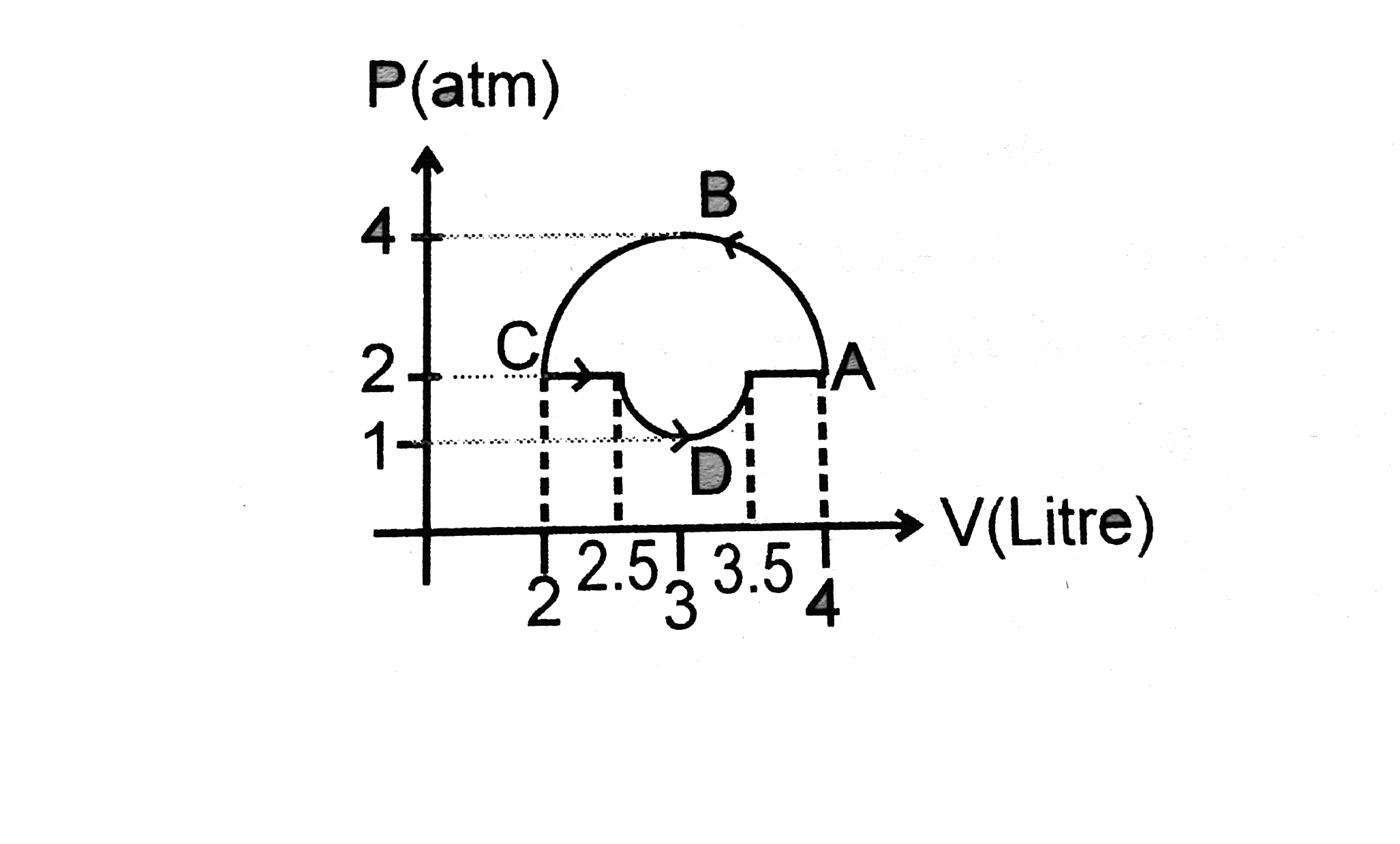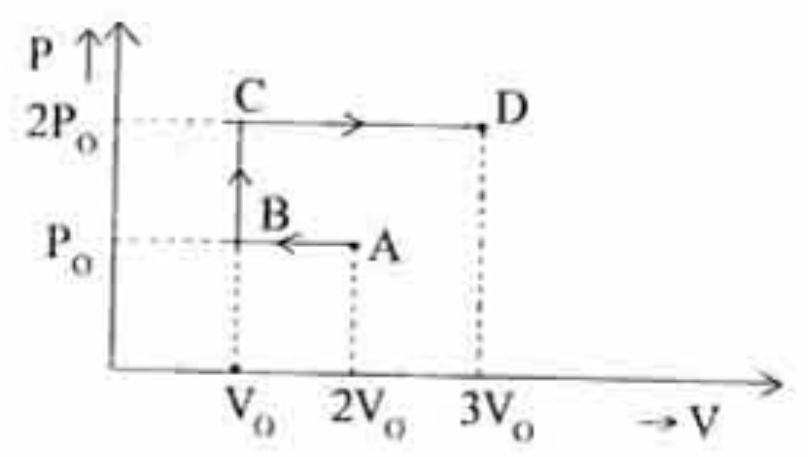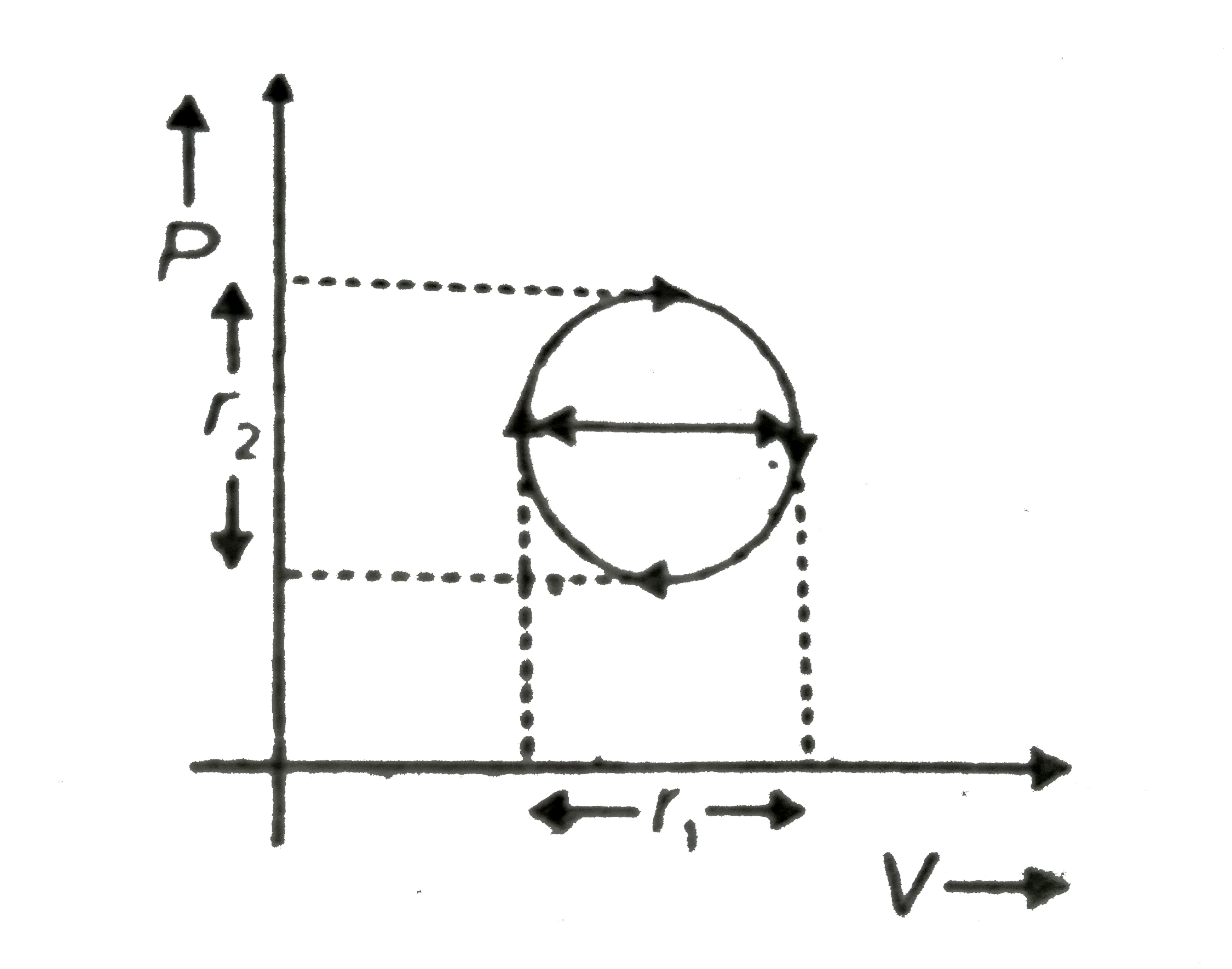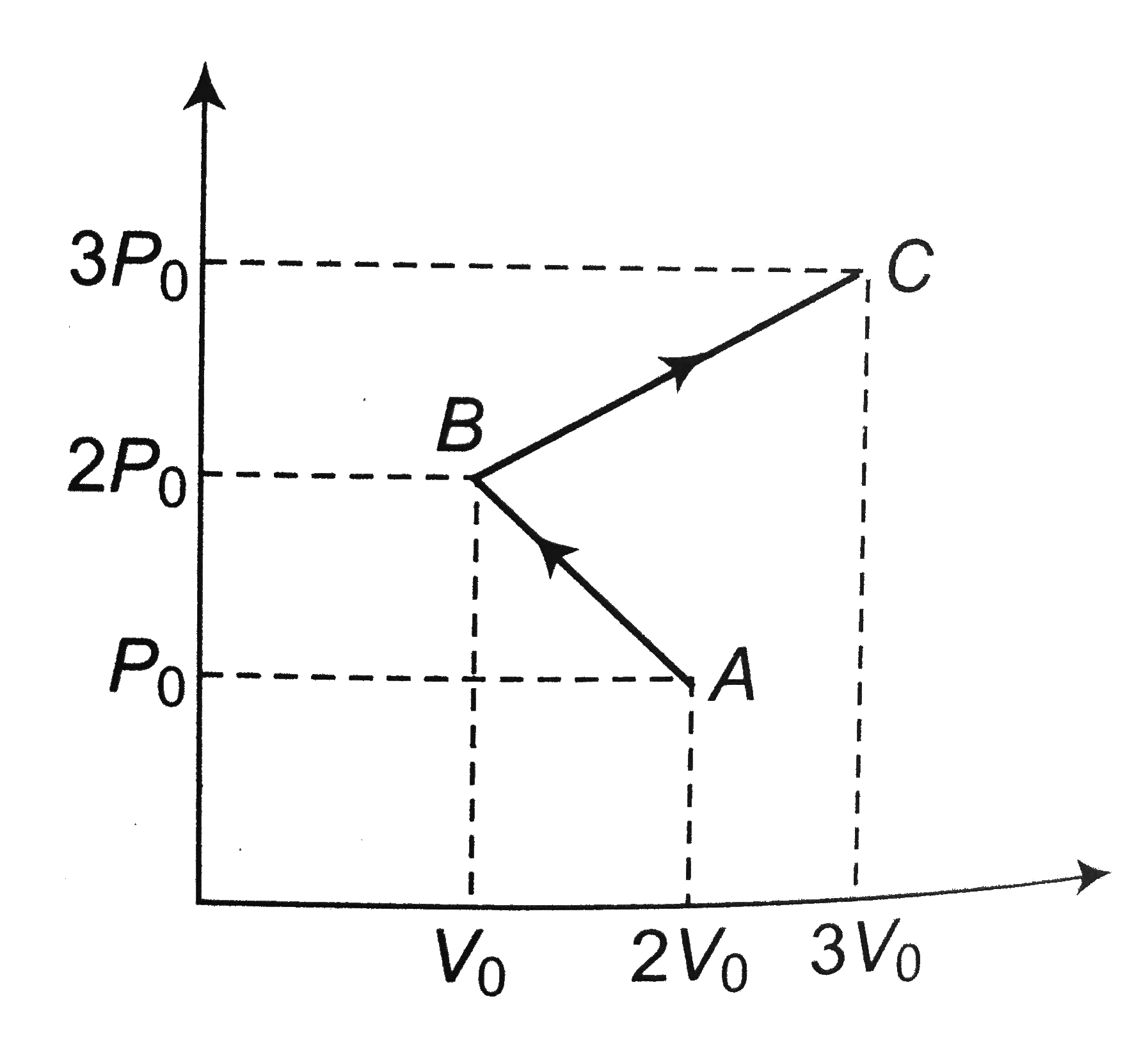Assertion: In a thermodynamic process, initial volume of gas is equal to final volume of gas. Work done by gas in this process should be zero
Reason: Work done by gas in isochoric process is zero.
(a) If both Assertion and Reason are true and the Reason is correct explanation of the Assertion.
(b) If both Assertion and Reason are true but Reason is not the correct explanation of Assertion.
(c) If Assertion is true, but the Reason is false.
(d) If Assertion is false but the Reason is true.
The correct Answer is:D
To solve the given question, we need to analyze the assertion and the reason provided:
1. Understanding the Assertion:
- The assertion states that in a thermodynamic process, if the initial volume of the gas is equal to the final volume, then the work done by the gas in this process should be zero.
- This implies that there is no change in volume, which is a key point in thermodynamics.
2. Understanding the Reason:
- The reason states that the work done by the gas in an isochoric process (where volume remains constant) is zero.
- This is a fundamental principle in thermodynamics: if there is no change in volume, there can be no work done since work is defined as the product of pressure and change in volume (W = PΔV).
3. Analyzing the Assertion:
- While it is true that in an isochoric process (constant volume), the work done is zero, the assertion claims that any process where initial and final volumes are equal must also have zero work done.
- This is not necessarily true. For example, in a cyclic process, the gas can return to the same volume but may have done work during the cycle.
4. Conclusion on Assertion and Reason:
- The assertion is incorrect because it generalizes that any process with equal initial and final volumes results in zero work done, which is not true for all processes (e.g., cyclic processes).
- The reason is correct because it accurately describes the work done in an isochoric process.
5. Final Answer:
- Therefore, we conclude that the assertion is false, but the reason is true. The correct answer is that the assertion is incorrect while the reason is correct.
- The assertion states that in a thermodynamic process, if the initial volume of the gas is equal to the final volume, then the work done by the gas in this process should be zero.
- This implies that there is no change in volume, which is a key point in thermodynamics.
- The reason states that the work done by the gas in an isochoric process (where volume remains constant) is zero.
- This is a fundamental principle in thermodynamics: if there is no change in volume, there can be no work done since work is defined as the product of pressure and change in volume (W = PΔV).
- While it is true that in an isochoric process (constant volume), the work done is zero, the assertion claims that any process where initial and final volumes are equal must also have zero work done.
- This is not necessarily true. For example, in a cyclic process, the gas can return to the same volume but may have done work during the cycle.
- The assertion is incorrect because it generalizes that any process with equal initial and final volumes results in zero work done, which is not true for all processes (e.g., cyclic processes).
- The reason is correct because it accurately describes the work done in an isochoric process.
- Therefore, we conclude that the assertion is false, but the reason is true. The correct answer is that the assertion is incorrect while the reason is correct.
Topper's Solved these Questions
- LAWS OF THERMODYNAMICSBOOK - DC PANDEY ENGLISHCHAPTER - LAWS OF THERMODYNAMICSEXERCISE - Level 1 Objective
14 Videos
- LAWS OF THERMODYNAMICSBOOK - DC PANDEY ENGLISHCHAPTER - LAWS OF THERMODYNAMICSEXERCISE - Level 1 Objective Questions
1 Videos
- LAWS OF THERMODYNAMICSBOOK - DC PANDEY ENGLISHCHAPTER - LAWS OF THERMODYNAMICSEXERCISE - Exercise 21.4
8 Videos
- LAWS OF MOTIONBOOK - DC PANDEY ENGLISHCHAPTER - LAWS OF MOTIONEXERCISE - Medical entrances gallery
39 Videos
- MAGNETIC EFFECT OF CURRENT AND MAGNETISMBOOK - DC PANDEY ENGLISHCHAPTER - MAGNETIC EFFECT OF CURRENT AND MAGNETISMEXERCISE - Integer type Questions
10 Videos
Similar Questions
Knowledge Check
Assertion : In an adiabatic process, change in internal energy of a gas is equal to work done on/by the gas in the process.
Reason : This is because temp.of gas remains constant in an adiabatic process.AIf both assetion and reason are true and reaasons is the correct expanation of assetionBIf both assetion and reason are tur but reason is not the correct explanation of assetionCIf assertion is true but reason is falseDIf both assertion and reason are false.
Find work done by the gas in the process shown in figure.

View SolutionWhy is the work done in isobaric process not zero always?
View SolutionP-V diagram of an ideal gas is as shown in figure. Work done by the gas in the process ABCD is

View SolutionThe work done by the gas in the process shown in given P-V diagram is

View SolutionA sample of gas is going through cyclic process, work done by gas is

View SolutionIn a process V∝T2, temperature of 2 moles of a gas is increased by 200K. Work done by the gas in this process will be
View SolutionThe final volume of a system is equal to the initial volume in a certain process. Is the work done by the system necessarily zero? Is it necessarily nonzero?
View Solution

